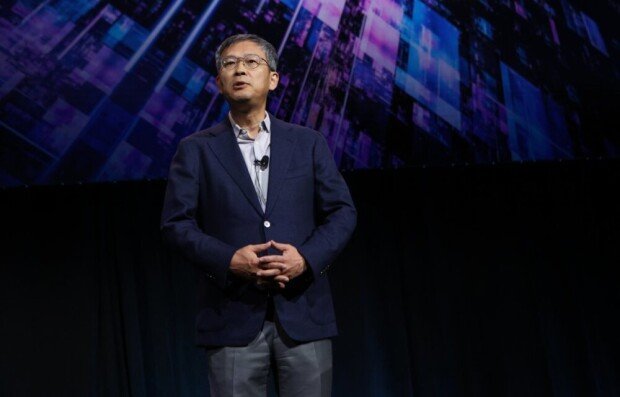Samsung to lead the AI market with next-generation chip ‘Shinebolt’
Samsung to lead the AI market with next-generation chip ‘Shinebolt’
Posted October. 21, 2023 08:12,
Updated October. 21, 2023 08:12

“The advent of super artificial intelligence (AI) marks a pivotal juncture where the prospects for technological innovation and economic growth converge. This era promises to usher in remarkable advancements while presenting formidable challenges to the semiconductor industry.”
At the Samsung Memory Tech Day 2023 conference, which took place in Silicon Valley, the U.S. on Friday (local time), Lee Jung-bae, president of Samsung Electronics Memory Division, underscored the significance of the AI market. Samsung Electronics introduced a multitude of cutting-edge memory solutions designed to excel in the fast-evolving hyperscale AI sector, where data processing is in high demand. Their strategic vision is to maintain leadership in shaping the future of memory technologies as the world’s foremost memory semiconductor company.
In the age of hyperscale AI, the pivotal focus lies on technologies that enable the swift exchange of vast data volumes with computing devices while simultaneously optimizing power consumption. Today, Samsung Electronics proudly unveiled its HBM3E DRAM, ‘Shinebolt,’ as a 5th-generation high bandwidth memory (HBM) innovation. Shinebolt boasts the extraordinary capability to process over 1.2 terabytes of data per second, equivalent to the speedy handling of 40 movies, each with a 30-gigabyte capacity, in just one second.
Samsung Electronics has announced its ambitious plans to develop next-generation 11-nanometer DRAM to achieve the highest level of integration within the industry. Additionally, the company has revealed its intention to introduce a groundbreaking three-dimensional (3D) structure for DRAM components, targeting dimensions of 10 nanometers or less. Once this cutting-edge technology becomes commercially viable, it has the potential to provide a capacity of more than 100 gigabytes on a single chip. Last month, Samsung Electronics unveiled a new DRAM product boasting an exceptional integration density of 32 gigabytes at the 12-nano level. The prospective development of a new 3D structure promises to increase this capacity by over threefold.
A strategic response to the evolving landscape of autonomous driving systems has been unveiled, which is centered around a removable solid-state drive (SSD) designed for vehicles. Traditionally, a separate SSD was necessary for each system. With this new product, a single storage device can be linked to multiple system-on-chip (SoC) components, serving as these systems' central ‘brain.’ This streamlined approach simplifies the integration of electrical components within vehicles. Furthermore, the SSD is detachable, offering the flexibility to increase its capacity as needed, adapting to changing circumstances.
bjk@donga.com







